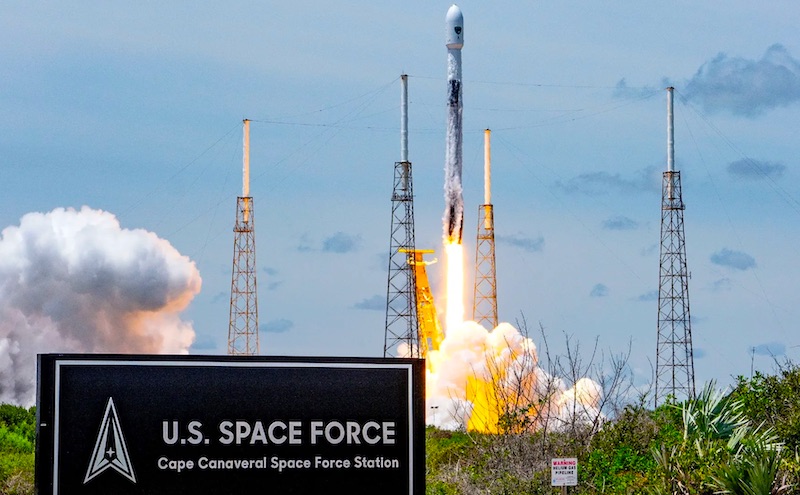Eco-Friendly Agriculture: The Rise of Sustainable Solutions in Modern Farming
By Space Coast Daily // November 17, 2024

As the world’s population continues to rise, projected to surpass 9 billion by 2050, the need for eco-friendly agriculture has become urgent. Traditional farming practices, while essential for early economies, now face the modern challenges of sustainability.
Agriculture accounts for over a quarter of global greenhouse gas (GHG) emissions, and the push for sustainable methods that balance productivity with environmental health is more important than ever. Eco-friendly agriculture solutions powered by AgTech innovations offer a way to enhance yields, reduce carbon footprints, and sustain soil health.
Defining Sustainable Solutions in Eco-Friendly Agriculture
Eco-friendly agriculture aims to integrate environmental, economic, and social considerations, creating resilient farming systems that support both people and the planet. Key aspects of sustainable solutions in eco-friendly agriculture include:
- Low Carbon Footprint: Reducing emissions across the agricultural supply chain is essential. This involves energy-efficient practices, minimizing soil disruption, and implementing low-emission inputs.
- Soil Health: Soil health is vital for crop growth and sustainability. Eco-friendly agriculture prioritizes reducing soil erosion, enhancing nutrient cycling, and retaining organic matter. Healthy soil not only yields more nutritious crops but also sequesters carbon, helping mitigate climate change.
- Water Efficiency: In response to global water scarcity concerns, eco-friendly agriculture embraces efficient water usage methods like drip irrigation and controlled-release fertilizers, conserving water and reducing nutrient runoff.
- Biodiversity: Encouraging diverse plant species and ecosystems on farms supports beneficial insects, reduces pest pressures, and creates a more balanced and sustainable ecosystem.
ICL’s Biodegradable Controlled Release Fertilizer
In response to these challenges, ICL Group has introduced eqo.x, a groundbreaking innovation in controlled-release fertilizers (CRF) that directly supports eco-friendly agriculture. Unlike traditional CRFs, which often use non-biodegradable coatings, eqo.x utilizes a first-of-its-kind biodegradable coating technology that aligns perfectly with environmental goals.
TRUE certification (Total Resource Use and Efficiency) is your pathway to turning waste streams into assets while creating lasting cultural change.
eqo.x’s coating technology enables precise nutrient release over time, tailored to crop growth cycles. This revolutionary technology offers several eco-friendly agriculture benefits:
- Increased Nitrogen Use Efficiency: eqo.x’s temperature-based mechanism delivers nutrients precisely when crops need them, increasing nitrogen use efficiency (NUE) by up to 80%.
- Reduced Environmental Impact: Nutrient losses are reduced by up to 50%, supporting the European Farm to Fork goals and minimizing runoff into soils and waterways.
- Fewer Applications: eqo.x’s controlled-release formula delivers nutrients steadily throughout the growing season, often requiring only a single application. This reduces both labor demands and fuel emissions.
eqo.x is a breakthrough in sustainable and eco-friendly agriculture, offering a biodegradable solution that meets regulatory demands while supporting long-term environmental sustainability and food security.
John Deere: Precision Agriculture Technologies for Eco-Friendly Agriculture
John Deere, a leader in AgTech, has advanced eco-friendly agriculture through its precision agriculture technologies. With tools like the John Deere Operations Center and variable rate technology (VRT), farmers can:
- Optimize Resource Use: Data-driven insights help farmers apply inputs like fertilizers and water only where they’re needed, minimizing waste and supporting eco-friendly agriculture.
- Reduce Soil Compaction: John Deere’s guidance systems enable machinery to follow precise paths, reducing overcompaction of soil, which can harm root growth and water retention.
- Lower Emissions: Precision technologies reduce trips across fields, decreasing fuel consumption and greenhouse gas emissions.
These innovations empower farmers to boost productivity while reducing environmental impact, reinforcing eco-friendly agriculture principles.
Bayer: Biological Crop Protection and Seed Treatments
Bayer has made strides in eco-friendly agriculture by focusing on biological crop protection solutions and seed treatments, reducing the need for traditional chemical pesticides and enhancing crop resilience.
- Biological Crop Protection: Bayer’s biological solutions use naturally occurring organisms or compounds to protect crops from pests and diseases without leaving chemical residues, supporting both soil health and eco-friendly agriculture.
- Enhanced Seed Treatments: Bayer’s seed treatments protect crops from pests in their early stages, reducing chemical applications later in the season. This approach promotes healthier plants, decreases pesticide usage, and aligns with eco-friendly agriculture goals.
AGCO: Smart Tractors and No-Till Systems for Eco-Friendly Agriculture
AGCO supports eco-friendly agriculture through its smart tractor technology and no-till systems, which help farmers reduce soil erosion, conserve moisture, and enhance carbon sequestration.
- Smart Tractors: Equipped with GPS and sensors, AGCO’s smart tractors enable farmers to optimize field operations, conserve fuel, and promote soil health, all while supporting eco-friendly agriculture.
- No-Till Farming: By minimizing soil disruption, AGCO’s no-till systems preserve organic matter and soil structure. This practice enhances soil health and biodiversity, and stores carbon, making it a crucial part of climate-smart and eco-friendly agriculture.
Driving Agriculture into a Sustainable Future
The rise of sustainable solutions in modern farming marks a profound shift in agriculture. Companies like ICL, John Deere, Bayer, and AGCO are pioneering innovations that prioritize resource efficiency, environmental health, and productivity. As we approach the European Commission’s 2028 deadline, these solutions will be key to transforming farming practices for a sustainable future.
By implementing eco-friendly fertilizers like eqo.x, leveraging precision agriculture technologies, adopting biological crop protection, and promoting soil health, the agricultural sector is increasingly prepared to meet global food demands in a sustainable way. Eco-friendly agriculture isn’t just possible—it’s the key to feeding the future.












